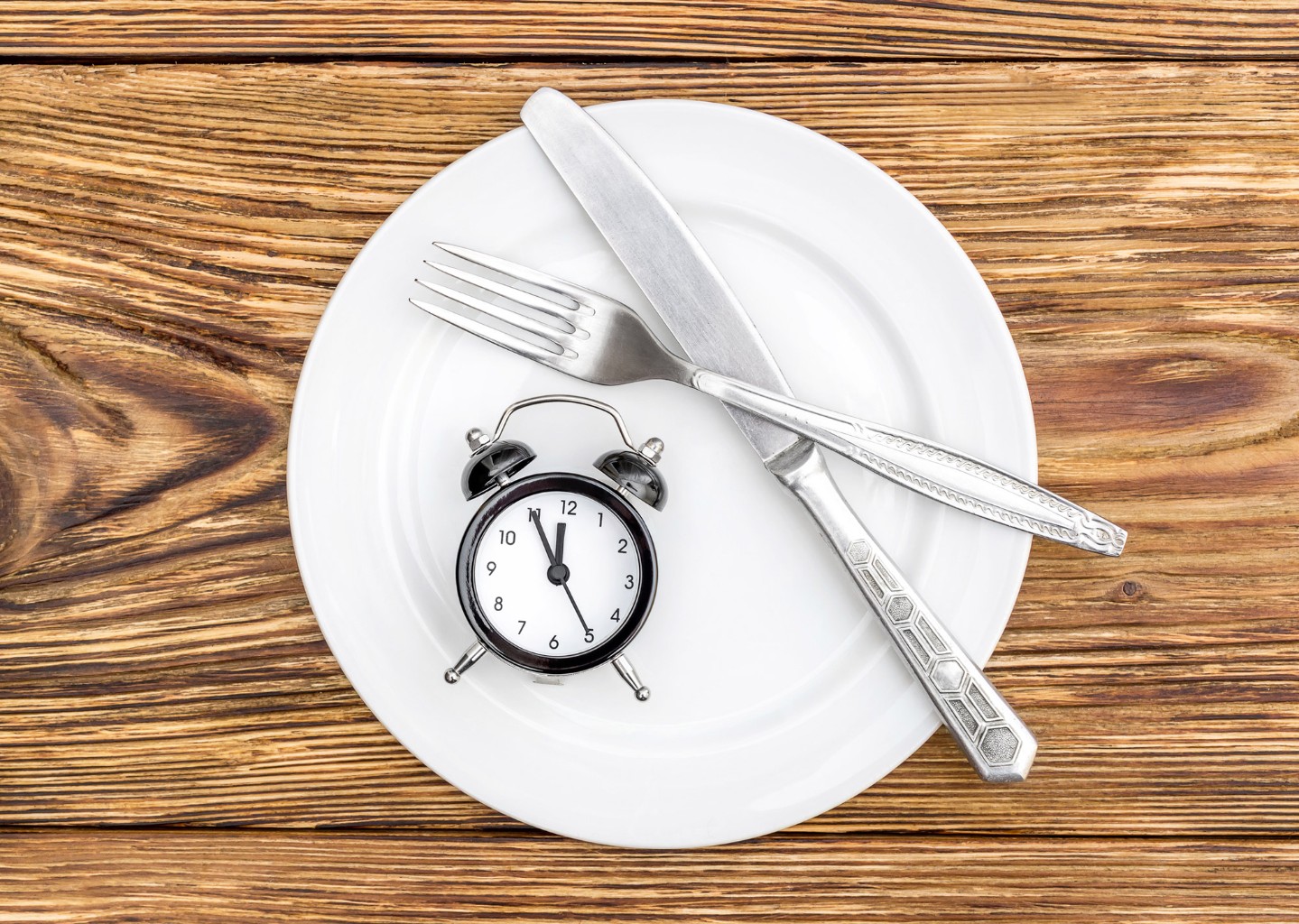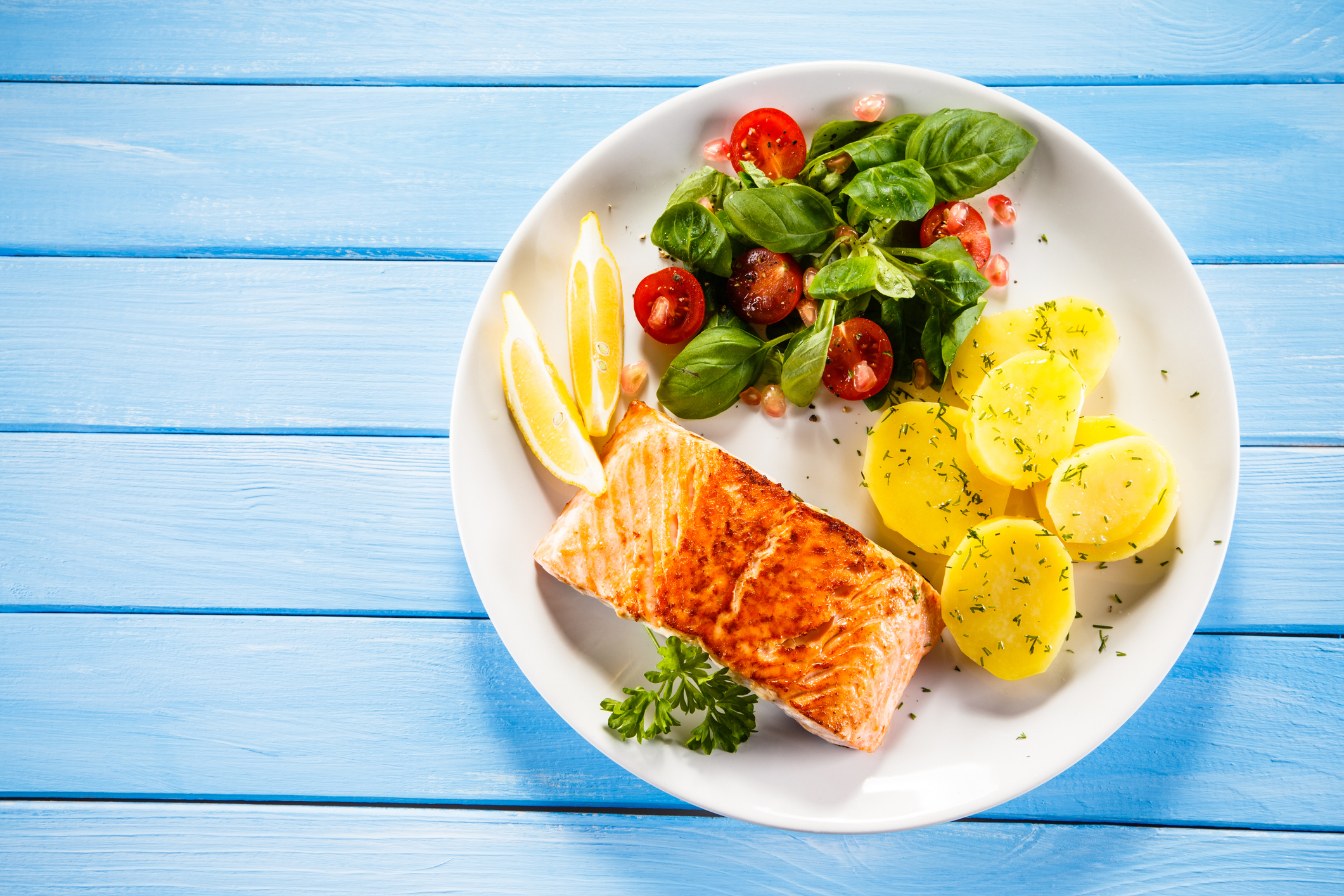Portion Control: Your Guide to Healthy Portions
SEP 09, 2024If your goal is either weight maintenance or weight loss, portion control can be a valuable tool to help you eat healthy.
Read More
WHAT IS IT Intermittent fasting (IF) is an eating pattern that has technically been around for thousands of years. This was the natural eating pattern for early humans. At times, large amounts of foods would be available to us, and during others food sources would be scarce. This leads to a pattern of feasting and fasting which our bodies adjusted to.
Fast forward to present day, the practice of IF centers around purposefully restricting food intake to a certain period of time (fed state) and fasting for a certain period of time (fasting state). There are several options and patterns one could follow depending on your schedule and lifestyle:
| Pattern | Fed State | Fasting State |
| Daily IF (Leangains Method) | Any 8 hour block of the day | Any 16 hour block of the day |
| Weekly IF | 6 full days of the week | 1 full day of the week |
| Alternate Day IF | 4 full days of the week | 3 full days of the week |
PROPOSED BENEFITS Proponents of intermittent fasting claim that the practice can help protect memory, slow the disease process and encourage weight loss. Those who practice also tout a simplified eating schedule that can require less time and money. There is also a theory that during the fasting state the body’s cells are in a slight state of beneficial stress, which allows the cells to learn/adapt new ways of dealing with stress, providing a protective effect against things like disease and aging and increasing our body’s ability to build lean mass.
RESEARCH National Institutes of Health (NIH) references many studies which included both intermittent fasting and calorie restriction. Studies testing these practices showed that in overweight women, intermittent fasting was just as effective as continuous calorie restriction on weight and insulin sensitivity.
Another study listed by the NIH done using overweight adults with asthma showed an improvement in markers of oxidative stress and other quality of life indicators. Other studies have been performed on animals. A study included mice who fasted twice weekly for 24 hours demonstrated that mice overate on non-fasting days and did not lose weight.
EXPERIENCE We wanted to see what all the hype was about, so we decided to try IF for ourselves. We chose the Daily IF pattern as this seems to be the most common and praised. During “fasting” times we would drink plain coffee, tea or water.
ELLEN’S EXPERIENCE Initially, I had a headache in the mornings, as I set my eating time from 12 p.m. – 8 p.m. The hardest thing for me was feeling “restricted”, that I wasn’t allowed to eat, even though my stomach was telling me I was hungry. This continued every day, but did improve by the end of the experiment.
I also noticed when it was eating time, I overate. I was so hungry and food focused, I ate quickly without allowing myself to enjoy the food or stopping to see how hungry I still was. I found myself eating a snack at 7:50 p.m. just because I knew I couldn’t eat again until lunch time the next day. Finally, I felt like it was hard for me to get in all my nutritional needs. I was under on my fruit and vegetable intake, just for lack of time to consume them. If done properly, this may be a realistic eating pattern for some individuals. My main concern would be meeting a person’s energy needs as well as possible effects when taking medications like insulin or sulfonylureas.
CHELSEA’S EXPERIENCE: It was tough for the first few days, but it didn’t take long to get used to. My fed state block was from 11 a.m. to 7 p.m., which basically meant I was skipping breakfast and stopped eating after dinner. I was VERY hungry to start the day off, but I could tell my body got used to the pattern pretty quickly.
After the first few days, I did feel like I had more energy through the day and less of an appetite. However, because I knew I would be restricted later on, I ate larger meals during my fed state which were generally less healthy than they would be through my normal eating pattern. I was just too excited about eating!
I did find it easy to plan meals during the work week, and it was easier to get to work because I didn’t sit down for breakfast. However, my husband and I live downtown Omaha, NE and love to meet friends for dinner and drinks over the weekend, almost always after 7 p.m. So, socially this was a very difficult eating pattern for me.
Both of us measured our body fat % vs. lean mass, tested blood sugar, and weighed ourselves prior to our experimental IF. Chelsea experienced no change in fat, muscle, weight or blood sugar after her 2 week period of IF. Ellen had minimal fat % decrease and no changes in blood sugar.
If you want to try IF for yourself, understand that planning is key! Take measurements before and after so you can determine if this is truly beneficial for you. We recommend journaling as well, noting your hunger and energy levels through your experience. If you are on any medications that are heavily affected by food intake and/or weight (medications for diabetes, high blood pressure, and others) please consult your primary care doctor before starting.

If your goal is either weight maintenance or weight loss, portion control can be a valuable tool to help you eat healthy.
Read More
Keep yourself energized with healthy foods so you can feel your best all summer long.
Read More
Smart grocery shopping is an important part of eating healthy. One of the simplest places to start is by creating a menu for yourself so you know what to buy.
Read MoreWhen you need local health information from a trusted source, turn to the CHI Health Better You eNewsletter.